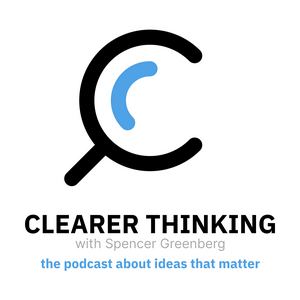Read the full transcript here. Why do humans live as long as they do? Since whales have literally tons more cells than humans, why don't they develop cancers at much higher rates than humans? What can the genetic trade-offs we observe in other organisms teach us about increasing human longevity? Will we eventually be able to put people into some kind of stasis? What is the state of such technology? What counts as being dead? How much brain damage can a person sustain before they're no longer the same person? Is lowering temperature the same thing as slowing time? What does it mean to turn organic tissue into "glass"? Would clones of me be the same person as me? How should we feel about death? What is "palliative" philosophy? Why are people generally supportive of curing diseases but less supportive of increasing human lifespan? Will humans as a species reach 2100 A.D.?Dr. Ariel Zeleznikow-Johnston is a neuroscientist at Monash University, Australia, where he investigates methods for characterising the nature of conscious experiences. In 2019, he obtained his PhD from The University of Melbourne, where he researched how genetic and environmental factors affect cognition. His research interests range from the decline, preservation, and rescue of cognitive function at different stages of the lifespan, through to comparing different people's conscious experience of colour. By contributing to research that clarifies the neurobiological, cognitive, and philosophical basis of what it is to be a person, he hopes to accelerate the development of medical infrastructure that will help prevent him and everyone else from dying. Read his writings on Substack, follow him on Bluesky or X / Twitter, email him at
[email protected], or learn more about him on his website. Further readingThe Future Loves You: How and Why We Should Abolish Death, by Ariel Zeleznikow-JohnstonStaffSpencer Greenberg — Host / DirectorJosh Castle — ProducerRyan Kessler — Audio EngineerUri Bram — FactotumWeAmplify — TranscriptionistsIgor Scaldini — Marketing ConsultantMusicBroke for FreeJosh WoodwardLee RosevereQuiet Music for Tiny Robotswowamusiczapsplat.comAffiliatesClearer ThinkingGuidedTrackMind EasePositlyUpLift[Read more]


